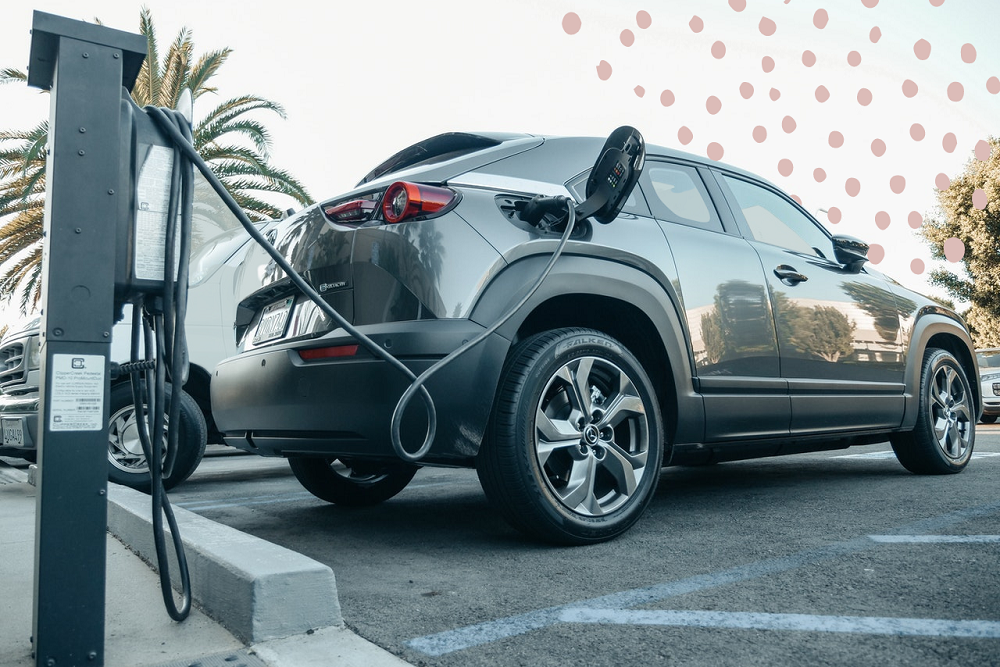Over the past fifteen years, electric cars have become firmly established as the mainstream alternative to petrol and diesel. Range anxiety is largely a thing of the past, charging infrastructure has expanded dramatically, and even die-hard sceptics have made the switch. With EVs now accounting for a significant share of new car sales, the question of their environmental credentials remains as relevant as ever.
One of the key benefits and selling points of electric cars is that they’re better for the environment. EVs are commonly described as “zero-emission” and adverts promote their green credentials. It’s why the UK government has committed to banning new petrol and diesel car sales from 2030, with hybrids following by 2035. Those targets have led to most major manufacturers committing to all-electric line-ups.
But are electric cars really better for the environment? It’s a question that continues to generate debate, and it’s a complicated one to answer. If you’re considering buying or leasing an electric car, we’ve put together everything you need to know about the environmental impact of electric vehicles so you can make your decision based on facts.
Is Driving An Electric Car Better For The Environment?
One of the longstanding criticisms of electric cars is that they’re not as eco-friendly as manufacturers want you to believe. You’ve probably seen headlines questioning whether electric vehicles are truly as green as claimed.
Critics of electric cars often point out that describing electric vehicles as “zero-emission” is misleading as they still indirectly contribute to emissions. However, when an electric vehicle is on the road, it produces zero tailpipe emissions. This is because EVs don’t produce harmful exhaust fumes that pollute both the local and global environment. They don’t have an exhaust. Full stop.
If you look at a mid-size petrol SUV like the Audi Q3, it produces around 130g of CO2 per kilometre. Compare that with the Audi Q4 e-tron, which is roughly the same size and produces zero direct carbon emissions. In fact, compare it with any electric car of any size, and it will have far lower lifetime emissions.
Mass adoption of electric cars is already helping carbon emissions drop on a global scale. But it’s also helping locally by improving air quality in towns and cities, which can save lives.

Is Recharging Better Than Refuelling For The Environment?
While electric cars don’t produce any direct emissions on the road, they need to be recharged using electricity. In most countries, electricity production still relies on fossil fuels to some degree, though this is changing rapidly.
Every country has a different energy mix meaning that in some places, EVs are much better for the environment and, in others, less so. The UK has made significant progress in decarbonising its grid, with fossil fuels now accounting for around 32% of electricity generation, down from over 40% just a few years ago. Renewable generation surpassed 50% for the first time in 2024. In comparison, Norway’s energy mix remains over 90% renewable. For this reason, the environmental impact of recharging an electric car varies by location, but is improving almost everywhere.
But if you compare it to refuelling a petrol or diesel car, the difference is noticeable. The production process of fuel for internal combustion engines (ICE) creates a massive amount of CO2 emissions. Studies have shown that petrol production creates around 3,000 grams of carbon per litre before it even reaches your tank.

Does Electric Car Production Harm The Environment?
The most significant criticism of electric cars is that the environmental impact of EV production is higher than for ICE vehicles. This remains true, and research from the European Environment Agency confirms it.
Most emissions from EV production come from the sourcing of raw materials and battery production. A significant proportion of EV batteries are still produced in Asia and predominantly in China. In China, up to 50% of EV production emissions come from battery production, largely due to the country’s reliance on coal for electricity.
Alongside the environmental cost of battery production, EVs also require various raw materials like cobalt and lithium. These raw materials need to be mined, which involves using a lot of energy derived from fossil fuels.
But there are some critical considerations. The EV market has matured considerably, and as production scales up, manufacturing efficiency continues to improve. China has also made progress on its renewable energy targets, with non-fossil fuel sources now accounting for a larger share of electricity generation, a trend that’s helping to reduce production emissions.
The final consideration is that manufacturers have developed comprehensive recycling procedures to drastically reduce the need for raw material mining. Volkswagen now operates battery recycling facilities, and the industry is working towards recovering over 90% of EV raw materials.
Read: Hybrid & Electric Car Questions Answered
So, Are Electric Cars Really Better For The Environment?
There’s no doubt that electric vehicles are better for the environment. There’s certainly plenty of room for improvement with more renewable energy and the recycling of raw materials. But even with current production procedures, EVs produce up to 70% fewer emissions than petrol vehicles over their lifetime, a figure that improves as electricity grids get greener.
If you’re thinking about switching to an electric car, you can rest assured that you’ll be helping the environment. But electric vehicles aren’t just good for the environment; they’re also typically cheaper to run than petrol or diesel cars, with lower fuel costs and reduced maintenance requirements.

Are Electric Cars Getting Cheaper?
One of the biggest barriers to EV adoption has historically been the upfront cost. While electric cars remain slightly more expensive than their petrol or diesel equivalents, the gap is narrowing. Increased competition, improved battery technology and economies of scale in manufacturing have all helped bring prices down, with more affordable models now available than ever before.
There are also several ways to reduce the cost of getting behind the wheel. Leasing and PCP finance deals make monthly payments more manageable, while salary sacrifice for electric cars has become an increasingly popular option for employees. Through salary sacrifice schemes, you can lease an EV through your employer using pre-tax income, which often results in significant savings compared to buying or leasing privately, particularly for higher-rate taxpayers.
Running costs also work in your favour. Electricity is cheaper than petrol or diesel per mile, EVs have fewer moving parts (meaning lower maintenance bills), and they’re exempt from road tax until 2025. Many drivers find that the total cost of ownership over several years is actually lower than a comparable petrol or diesel car.
The Bottom Line
Electric cars are better for the environment, that much is clear. While there are legitimate questions around battery production and the carbon intensity of electricity grids, the evidence consistently shows that EVs produce significantly fewer emissions over their lifetime than petrol or diesel vehicles.
As renewable energy continues to grow and recycling technology improves, that advantage will only increase. Factor in lower running costs and increasingly competitive prices, and the case for going electric has never been stronger.





